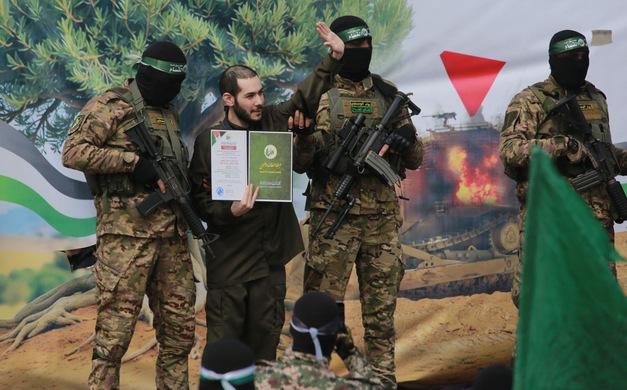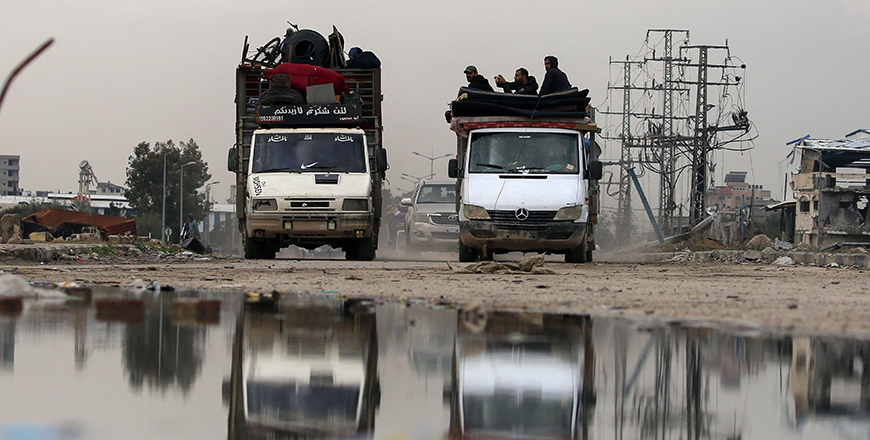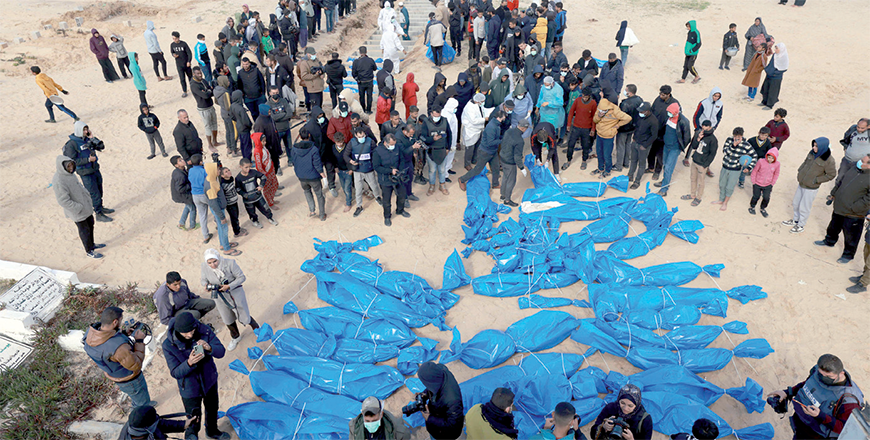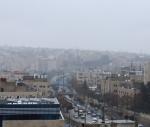You are here
Palestinian official says Israel expels residents of Jenin refugee camp
By AFP - Feb 23,2025 - Last updated at Feb 23,2025
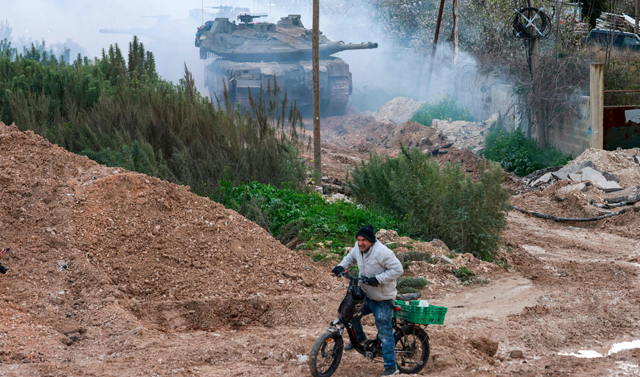
A man rides his bicycle as Israeli tanks enter the Jenin camp for Palestinian refugees in the occupied West Bank, on February 23, 2025 (AFP photo)
OCCUPIED JERUSALEM — Israel on Sunday announced an expansion of military operations in the occupied West Bank.
The Israeli occupation forces said a tank division will be sent in to the West Bank city of Jenin, the first such deployment to the territory in 20 years.
"A tank division will operate in Jenin" as part of "expanding" operations in the area, the army said, where it began a major raid just after the Gaza truce began.
The United Nations has said the military activities have led to "forced displacement" of 40,000 Palestinians from Jenin and other refugee camps.
Defence minister Israel Katz said he has told troops "to prepare for a prolonged presence in the cleared camps for the coming year and to prevent the return of residents and the resurgence of terrorism."
Qabatya village, south of Jenin, Israeli military bulldozers destroyed roads, power and water lines, vehicles and property during a raid, the local council said in a statement.
In remarks to the government-owned Al Mamlakah TV, Jenin governor Kamal Abu Al Rub said that "the Jenin Refugee Camp is now completely empty of Palestinians after the occupation army forced them to leave."
He said that the occupation army has forced over 15,000 people to leave the camp and another 2,500 from the city of Jenin, adding all are currently sheltering on outskirts of the camp.
The governor also said that the occupation forces were destroying the infrastructure in Jenin and its camp, and bulldozering streets and public properties.
Meanwhile, Hamas on Sunday said Israel has gravely endangered a five-week-old Gaza truce by delaying the release of Palestinian prisoners under the deal because of the manner it has freed Israeli hostages.
The first phase of the truce ends early in March and details of a planned subsequent phase have not been agreed.
Since the Gaza ceasefire's first phase began on January 19, Hamas has released 25 living Israeli hostages in ceremonies before crowds at various locations in Gaza.
Armed masked fighters escort the captives onto stages adorned with slogans. The hostages have spoken and waved in what Israeli Prime Minister Benjamin Netanyahu called "humiliating ceremonies".
The Red Cross has previously appealed to "all parties" for the swaps to be carried out in a "dignified and private" manner.
In the seventh such transfer, Hamas released six Israeli captives on Saturday but Israel put off the planned release of more than 600 Palestinian prisoners in exchange.
Senior Hamas official Bassem Naim said postponing the release exposes "the entire agreement to grave danger".
Naim said the mediators, "especially the Americans", must pressure Israel's government "to implement the agreement as it is and immediately release our prisoners."
Both sides have accused each other of violations during the ceasefire but it has so far held.
n the West Bank as well as in Gaza, families of Palestinian prisoners had waited with uncertainly into the night on Saturday, hoping for their release.
In the city of Khan Yunis, Umm Diya Al Agha, 80, said she had received word her son was among those scheduled to be freed, after 33 years in prison.
"If my heart were made of iron, it would have melted and shattered. Every day, I have been waiting for this moment," she said.
Related Articles
OCCUPIED JERUSALEM - Hamas on Sunday said Israel has gravely endangered a five-week-old Gaza truce by delaying the release of Pale
OCCUPIED JERUSALEM — Hamas said Thursday it was committed to honouring a truce with Israel that is facing its worst crisis since it took eff
GAZA STRIP, Palestinian Territories — Deadly bombardment rocked Gaza on Tuesday as international mediators pushed for a new halt in the Isra


